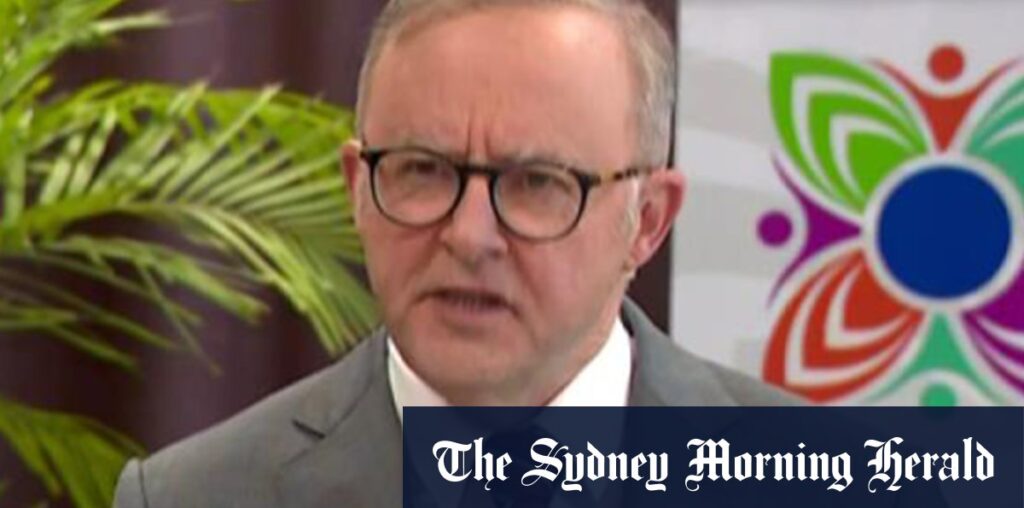“And it is up to countries like Australia to show leadership. We have done that, which is one of the ways that we have restored our credibility in international forums such as this.”
The Tuvalu prime minister spoke to journalists after launching a report by the Fossil Fuel Non-Proliferation Treaty Initiative that blames Australia, Canada and the United Kingdom for producing 60 per cent of carbon emissions from all Commonwealth nations, even though they account for only 6 per cent of the population.
Loading
The initiative, led by Samoan activist Brianna Fruean, describes itself as an idea rather than an organisation. Its report was backed by Ralph Regenvanu, the Special Envoy for Climate Change and Environment for Vanuatu.
In a key difference from other studies, the report calculates the 60 per cent figure by counting all fossil fuel extraction, including the coal and gas Australia exports. This contrasts with the approach under the United Nations protocol on climate change, which counts emissions where the energy is consumed.
Teo said Australia had signed a climate commitment with Tuvalu and should cut emissions further to honour the agreement.
“My view of that commitment is that Australia has not only given a legal commitment but is highly morally obliged to ensure that whatever action it does will not compromise the commitment that it has provided in terms of climate impact on Tuvalu,” he said.
Loading
“On that platform, I am hoping that we will be able to leverage Australia’s support and hopefully that will translate to reducing its emission levels.
“As you know, the current Australian government commits to net zero by 2050.
“Obviously, the activities and actions that are reported in the report that is being launched are not consistent with the broader spirit of achieving that objective.”
The host of the meeting, Samoan Prime Minister Afioga Fiamē Naomi Mataʻafa, is seeking a stronger commitment on climate change as a step towards a global pact at the UN climate summit later this year.
King Charles III, who is presiding over this year’s meeting for the first time as sovereign and head of the Commonwealth, has signalled his support for that objective by making the environment a major part of his visit.
Albanese will hold talks with British Prime Minister Sir Keir Starmer on Friday morning before the CHOGM formalities, their first face-to-face meeting since the UK election in July.
While some Commonwealth leaders want the UK to apologise for historical slavery, Starmer has rejected that call and said he wanted this week’s meeting to put a priority on climate change.
Albanese said the decision on slavery was a matter for the UK and he expected to focus on climate change, economic development and the “blue Pacific” agenda on ocean health.
On the eve of CHOGM, the head of the Commonwealth’s business forum, Lord Jonathan Marland, declared Australia had a chance to regain support in the Pacific after being “asleep on the watch” while China extended its reach.
“What has struck me about being here is how Australia – and, indeed, New Zealand – are now committing to really supporting these islands in a much more positive way than they have in the past,” Marland said.
Cut through the noise of federal politics with news, views and expert analysis. Subscribers can sign up to our weekly Inside Politics newsletter.


